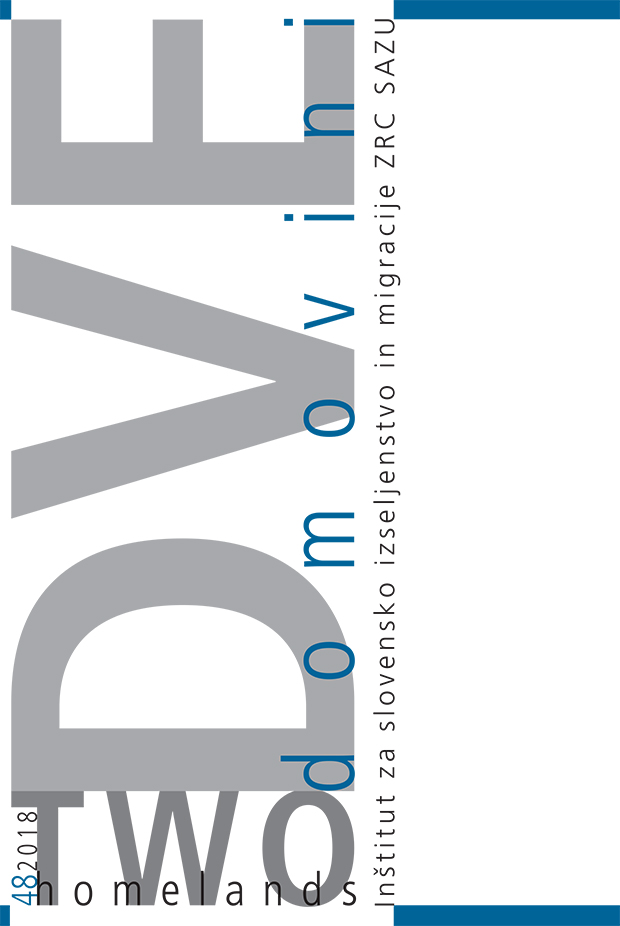Identities and Belongings of “Second-Generation Migrant Women”
DOI:
https://doi.org/10.3986/dd.v0i48.7134Keywords:
cultural identity, ethnic identity, mixed identity, second-generation migrant, womenAbstract
The article deals with issues of (cultural and ethnic) identity formation and belonging in the case of “second-generation female migrants” from former Yugoslavia in Slovenia. Subjective perceptions, the complexity of identity self-perception and the role of the wider environment (peer group, family) are explored. The article addresses three closely connected yet separate issues: (1) the problematic nature of monoethnic affiliations; (2) the fact that ethnic boundaries do not necessarily coincide with cultural ones; and (3) the complexity of self-perception processes and cultural mixing. The article questions the assumption that cultural assimilation is straightforward in the case of “second-generation migrants”, addresses gender and religion as important factors, and exposes the “in-between” position of “second-generation migrants”.Downloads
Download data is not yet available.
Downloads
Published
2018-11-21
How to Cite
Sedmak, M. (2018). Identities and Belongings of “Second-Generation Migrant Women”. Two Homelands, (48). https://doi.org/10.3986/dd.v0i48.7134
Issue
Section
Articles
License

This work is licensed under a Creative Commons Attribution-NonCommercial-NoDerivatives 4.0 International License.
Authors guarantee that the work is their own original creation and does not infringe any statutory or common-law copyright or any proprietary right of any third party. In case of claims by third parties, authors commit their self to defend the interests of the publisher, and shall cover any potential costs.
More in: Submission chapter





